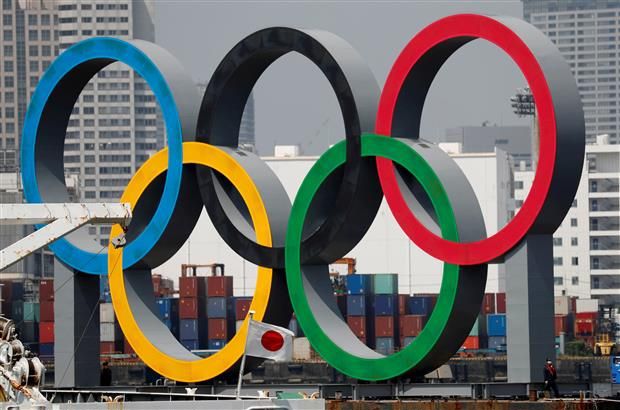The year 2021 was annus horribilis, the year of India’s greatest holocaust in 74 years — it was the year of the greatest collective and personal grief since 1947. But in the struggle of memory against forgetting, it’s our ability to wilfully forget that keeps us sane.
The memories of the devastation wrought by the second wave of the coronavirus — pyres lit by the dozen in school playgrounds, corpses floating in the Ganga, hospital fires and death in family and among friends — have been repressed. Unwanted memories are shoved into the subconscious, as Freud did say. India’s worst tragedy since 1947 has been forgotten.
In the backdrop of the Covid tragedy of 2021, the feat of our great athletes at the Tokyo Olympics — organised in insufferable suffocation, yet greatly liberating — put a glowing, pleasant layer on the top of our bank of memories. India won seven medals in Tokyo, the country’s greatest performance in the Olympics. Neeraj Chopra won gold in athletics, a feat that seems scarcely believable even now — just a decade ago, no one thought it possible that an Indian could win a medal in track and field, called the “mother” of all sports, at the toughest competition in the world. Mirabai Chanu and Ravi Dahiya won silver medals; PV Sindhu won her second Olympics medal in a row, emulating the great Sushil Kumar; the hockey team made old men, who clung to memories of India’s hegemony in the sport, cry in joy. Bajrang Punia won a bronze despite an injury, and Lovlina Borgohain got another, losing only to that great Turk, Busenaz Surmeneli.
Seven medals for India, our greatest Olympics show, despite the vaunted shooters coming a cropper for the second Olympics in a row.
The trouble with unprecedented success is that we tend to lose our sense of proportion —in the case of Neeraj Chopra, everyone wanted a piece of him. Everyone claimed Chopra as their own — Punjabis said he’s Chopra, a Punjabi Khatri; Haryana celebrated, of course, because he comes from that state; stray Rajputs and Gujjars claimed online that Chopra belonged to their caste; the Rors said Chopra is a Hindu Ror; and the Marathas said Chopra descends from Maratha soldiers who fought the Afghans in Panipat in 1761.
Chopra was summoned and invited to so many government and private celebrations that he put on weight and his training suffered.
In the aftermath of the Tokyo triumph, the politicians took over, showering the winners with taxpayer money, using the opportunity to celebrate their own role in the athletes’ success, get photographed with them.
India won three medals at Beijing 2008, six in London 2012; sports ministers, lesser experts than coaches and players, extrapolated from these trends to come up with wild conjectures — double the number in 2016, more in Tokyo 2020, and so on until the grand triumph at home when the Olympics come to India in the 2030s.
But extrapolation and conjecture don’t work in the world of elite sports, and the wild hopes came crashing down at Rio de Janeiro 2016. India won only two medals, courtesy PV Sindhu and Sakshi Malik, with the latter securing hers in the final seconds of her medal match.
The seven medals in Tokyo have also led to a game of extrapolation — hopes of 10 medals or more in Paris. Our current Olympics squad is around the same size as the 2021 contingent, but the count of seven is unlikely to be matched, unless the shooters perform extraordinary well. It would be very difficult for Sindhu and Mirabai to repeat their Tokyo feat, as also for the hockey team. There’s only one male wrestler in the squad, and all expectations rest with the women, especially Antim and Vinesh.
In elite sport, memory is a powerful tool through which past feats can be visualised, rehearsed to boost confidence — in the coming days, no doubt, Sindhu and Mirabai would relive the days of their Olympics glory, while Vinesh would try to shove the painful memories of her own two Olympics down into the recesses of the subconscious.
The opening ceremony, with 85 boats carrying athletes down the Seine towards the Eiffel Tower, afforded an opportunity to the Algerian contingent to revive a terrible memory. They tossed roses into the river, to pay tribute to the Algerian freedom fighters massacred by French security forces in Paris in 1961. It is believed that up to 200 protesters were killed, their bodies dumped into the Seine.
The Algerians continue to keep that memory alive, for the struggle of man against power is the struggle of memory against forgetting, as Milan Kundera wrote.
Unlock Exclusive Insights with The Tribune Premium
Take your experience further with Premium access.
Thought-provoking Opinions, Expert Analysis, In-depth Insights and other Member Only Benefits
Already a Member? Sign In Now











